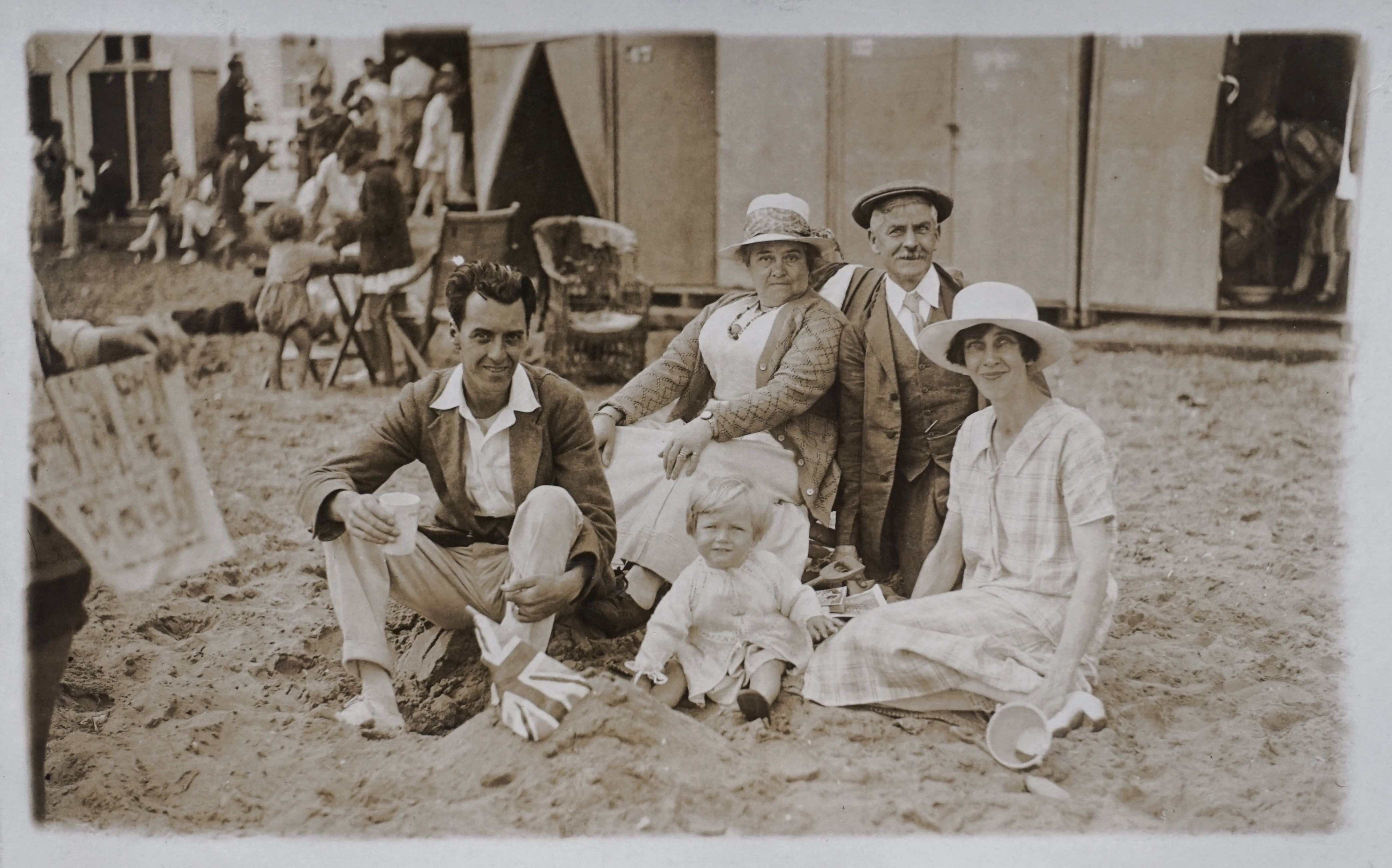
11 Tips for Conducting International Genealogy Research
11 TIPS FOR CONDUCTING INTERNATIONAL GENEALOGY RESEARCH
Historically, the term “melting pot” has often been used to describe America. This is because, aside from the few who are of 100 percent Native American ancestry, all of our ancestors came to this country from somewhere else. And all of their different cultures came together in one big melting pot that is now the United States.
But have you ever wondered what culture(s) your ancestors contributed to the big melting pot of America? Have you stopped to think about the lives those ancestors led before they arrived in this country?
If you’ve ever yearned to discover your family roots, there is no better way than to travel to the places where your ancestors once lived. And doing genealogical research in those places can not only uncover information about your ancestors but can also make you feel more connected to your past than you ever thought possible.
Before you get started on your international research journey, here are 11 tips to help make your quest a success.
BEFORE YOU LEAVE HOME:
1. Do Your Research
Before you can travel to your ancestral homeland, you first need to do the research to identify exactly where that is.

To get started, use online sources such as Ancestry or Family Search to build your family tree and research your family history.
From there, you can decide which area of your tree you want to focus your travel research on first.
2. Collect Stories
Much like the game “telephone,” family stories that are passed down from generation to generation are notorious for being twisted as they make their way through the family line.
It’s important to remember, though, that while they may be embellished, these stories originated from somewhere. So, there’s likely at least a little bit of truth to them.
Before you take off on your research journey, sit down with your family members and ask them what stories they’ve heard. You can use their answers as clues to help find the real truth.
3. Look Into Your Name
For a variety of reasons, surnames—and sometimes even first names—of immigrants were frequently changed when they moved to a new country.
Sometimes it was because of a lack of literacy (either on the part of the immigrant, or the official recording them), so names were spelled phonetically by whoever was writing them down. In these cases, surnames like “Forsyth” may have been spelled “Forsythe,” “Forsithe,” or any other possible way.
Other times, names were changed in an attempt to assimilate with the new country. In these cases, Johann Müller may have become John Miller, or Giuseppina Martino may have become Josephine Martin.
Additionally, many countries have traditions of giving their children multiple first, middle, and last names. Frequently, those names were shortened when people immigrated.

So, you may find baptism records for your ancestor “Fernando Lopez” under the name “Luis Fernando Manuel Lopez Ortega.”
When you are doing your research, keep this in mind and be sure to search for other possible variations of your ancestors’ names.
4. Know Your History
Geographical and political borders have changed greatly throughout the years. While you may know that your ancestors came from France, depending on when they immigrated, that could mean many different things.
For example, if they immigrated at the height of the Napoleonic era, they may have actually lived in what is now Italy, Belgium, or even Croatia.
Or, if your ancestors came from Russia prior to World War I, they may have originated in what we now know as Finland or Estonia.
Familiarizing yourself with the history of the area where your family lived is an essential step in finding their records. After all, chances are high that those records may not actually be in the country you think they are.
5. Plan To Be Flexible
When traveling to a foreign country, it’s natural to want to have some kind of plan. Showing up without a hotel booked or an itinerary planned can be a bit daunting, especially if you are not familiar with the country.
That being said, when making your travel plans, leave room for flexibility. You never know where your research might take you.

If possible, book flights that can be changed if needed. And when booking hotel rooms, make sure they offer free cancellations.
That way, if your plan is to spend four days in Tokyo, but your research shows that your ancestors actually lived in Osaka, you won’t waste money and time staying too long in the wrong place.
6. Watch Your Language
If you’re like most Americans, you probably don’t speak anything other than English (and maybe some high school French or Spanish). And, even if you do, your second (or third) language may not be the language of your ancestors.
Before you head out on your travels, take the time to learn some basic terminology in your ancestral language. Knowing the words for things like “birth,” “baptism,” and “surname” will be a huge help when you’re trying to navigate records.
Also be prepared for documents to be written in ancient forms of the language, such as Old English, Old German Gothic, or sometimes even Latin.
7. Make Appointments
Unlike some state archives and the National Archives in the United States, most places abroad require you to make an appointment in advance to do research. This is especially true if you are hoping to look through records at the local parish.
Luckily, a quick Google search can usually give you the contact information you need to email the person in charge of booking appointments (or the link for the online reservation database).
Be aware that some larger facilities require you to obtain a reader’s ticket in advance, as well as provide proof of your identity and address when you arrive.
Depending on the country, you may also have to have your documents translated into the local language.

Just be sure to check the website for each research facility, to make sure you are prepared before you go.
WHILE TRAVELING:
8. Talk to Strangers
As a kid, you may have been taught not to talk to strangers. Well, this is the time to throw that rule out the window!
While you are traveling and doing your research, don’t be afraid to step outside your comfort zone and talk to the locals. Even if there’s a language barrier, you will find that a smile—and an attempt at the local language—goes a long way. And, in many places, you’ll even discover that the people there speak at least a little English, as well.
Although the locals may not know anything about your ancestors, they may be able to fill you in on some of the area’s history or point you in the direction of places where you might find records.
9. Interview Distant Relatives
While the bulk of your travel research will be done in libraries and research facilities, don’t underestimate the power of in-person interviews.

If you’re lucky enough to track down relatives still living in your ancestral homeland, take the time to sit down with them and ask them questions about what they know.
Chances are, they may have some valuable information about your family’s history that you were not aware of.
Even if your relatives know nothing about your mutual ancestors, it’s still fun meeting people across the world who share your DNA — even if it’s just a small percentage.
10. Ask Questions
During one of my recent genealogical research trips, an archivist I met gave me some very basic but good advice. He said, “If you don’t ask the questions, you’ll never know the answers.”
As obvious as that may sound, it’s 100 percent accurate.
When you’re doing genealogical research in a foreign country, you can’t be afraid to ask questions. People who work at the local archives are frequently very knowledgeable about the records that they keep. And most of the time, if you are brave enough to reach out and ask the questions, they are more than happy to help you find the answers.
11. Don’t Get Discouraged
International research is tough. Not only are you dealing with language barriers and getting access to research facilities, but frequently you run into issues even finding where the records reside.
It can be extremely frustrating to travel halfway across the world, only to come up empty-handed in your quest.

Don’t give up, though. You just need to dig a little deeper and be open to looking in less obvious places.
And, if it all feels too overwhelming, consider hiring a professional genealogist or historian to help you with your search.
Related Content
- 0 Comment
Subscribe to Newsletter
- How Can SharePoint Be Used To Organize and Disseminate SOPs?
- Planning the Perfect Genealogy Research Trip: A Step-by-Step Guide
- From Silly to Awesome: How Words Change Meaning Over Time
- The Psychology of Font Choice: How Typography Impacts Content Engagement
- How to Distribute SOPs for Maximum Usability







